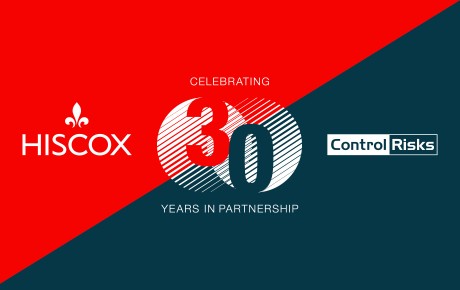
Market cannot afford to underestimate the risks of the post-Covid rebound
Businesses able to transform the lessons of the pandemic into risk insights will be better positioned to mitigate a radically transformed threat landscape.
The outlook is finally beginning to brighten. Economies, particularly those countries with access to large supplies of vaccine and cheap debt, are forecast to rally strongly after nosediving during the pandemic. The US recently put the finishing touches to a $2 trillion stimulus package while the European Union has approved a €750 billion ($898.7 million) recovery plan.
Rising consumer confidence and pent-up demand are likely to trigger a rebound in the service and manufacturing sectors, while oil and other commodities will also benefit from the global economic upturn.
But the economic rally will not be smooth or uniform. Some countries will rebound faster than others, while the overall recovery remains fragile, with the continuing threat of renewed lockdowns if new vaccine-resistant mutations of the virus emerge – several European countries are already imposing restrictions ahead of an expected third wave of infections.
This year will therefore be a pivotal one for many businesses. As countries gradually emerge from lockdowns and roll out the mass vaccination of their citizens, companies must adapt to a new world living with Covid-19.
In such an uncertain climate, it is vital that businesses prepare for a wide range of emerging threats. ‘Missing the rebound’ is one of the top risks businesses face in 2021, according to Control Risks, Hiscox’s crisis management partner. But how does a company make sure it is ready to ride the Covid-recovery wave?
Different risks
Companies that are more likely to bounce back are those that are better prepared for future challenges. Some companies will emerge from lockdown leaner and fitter, having had a shot in the arm from being forced to embrace of digital working. Nearly four out of ten businesses said the Covid-19 crisis had had some positive financial or operational impact on them, according to Control Risks’ 2020 Global Resilience Survey. Businesses that convert the innovations and efficiencies imposed by the pandemic into lasting business gains while scanning the horizon for emerging risks and opportunities are likely to do best.
Businesses that convert the innovations and efficiencies imposed by the pandemic into lasting business gains while scanning the horizon for emerging risks and opportunities are likely to do best.
The pandemic has shown how ‘black swan’ events can disrupt even well-prepared businesses. But it is a reminder too of the threat that more common risks pose. Insurable risks of all kinds are evolving as the pandemic has fundamentally altered the business landscape, particularly those closely affecting our Crisis Management division.
Although Covid-19 has clearly brought new public health challenges, it did not dramatically alter the risks facing organisations. Instead, it accelerated and intensified these pre-existing threats.
Although Covid-19 has clearly brought new public health challenges, it did not dramatically alter the risks facing organisations. Instead, it accelerated and intensified these pre-existing threats.
It created plenty of opportunities for fraud and corruption as businesses grappling to stay afloat have been unable to focus on their routine compliance and due diligence. We see this trend continuing while economies remain fragile.
In 2020, many companies were forced to execute their five-year tech strategies in five weeks. This lightning acceleration in acquiring and applying technology leaves companies open to fraud. How many companies updated their risk registers or their tech-use policies after their rapid switch to online? Do they know what vulnerabilities they’ve embedded into their systems? The pace of change is not likely to slow, so companies will have to “patch as you go” for the foreseeable future. But missed patches create weak points that hackers and fraudsters can exploit.
Long-simmering grievances and discontent that triggered protests in many countries in 2019 and 2020 have been intensified by some governments’ mishandling of the pandemic and are likely to reignite as lockdowns are eased. Smouldering tensions between countries will be stoked by a rising wave of nationalism and ‘vaccine diplomacy’. In addition, economic hardship, unemployment, and desperation among those who have fared worst during the pandemic are likely to result in more outbreaks of violence. As a result, multinationals could be fighting fires across the world. They face a higher risk of having their overseas and domestic operations disrupted, their assets expropriated and contracts cancelled, as well as collateral damage of strikes, riots, social unrest and political violence.
Build back stronger
In such turbulent and uncertain times, companies must be ready to face the new challenges and threats that emerge. Many chief executives and executive teams will think that surviving a public health crisis is proof enough of their resilience, but a company’s ability to roll with the punches and be ready to go again is the real test. Now is the time to reflect, train and prepare for the next round – just like a boxer.
We use the “Three Rs” – readiness, response, recovery – to describe the crisis life cycle. Resilient businesses will now be learning lessons from the pandemic and implementing change; this preparatory work will enable them to move successfully from recovery back to readiness.
We use the “Three Rs” – readiness, response, recovery – to describe the crisis life cycle. Resilient businesses will now be learning lessons from the pandemic and implementing change; this preparatory work will enable them to move successfully from recovery back to readiness.
In military strategy, an army’s reserve is essential to its success on the battlefield; a general can deploy extra troops if the tide of battle unexpectedly changes. A commander’s first priority after an engagement is to reconstitute the reserves, and the same should be true for a chief executive whose company has been fighting the pandemic. Its resources have been stretched to the limit, while it has been forced to adopt new technologies, working practices, suppliers and business partners – perhaps even a new business model – in a hurry. So, now is the perfect time to take stock.
The most resilient companies do not rely on luck to survive a crisis. They learn lessons when things go wrong so they bounce back quicker the next time. To do that, a company’s risk and security leaders need to be properly resourced and empowered. There is a clear business value in being more resilient. Companies that handle a crisis well have seen their market value increase by between 10% and 20% according to research by Pentland Analytics.
Covid-19 has been a powerful accelerator of technological, economic, social and political change. Companies can learn to keep up with that fast pace by using the three Rs to embrace the new era of transformation. For many, 2021 will define their strategy and performance for years to come.
*****************************
This article was first published by the Insurance Day on 19th April 2021:
https://insuranceday.maritimeintelligence.informa.com/ID1136500/Focus-Market-cannot-afford-to-underestimate-the-risks-of-the-post-Covid-rebound



